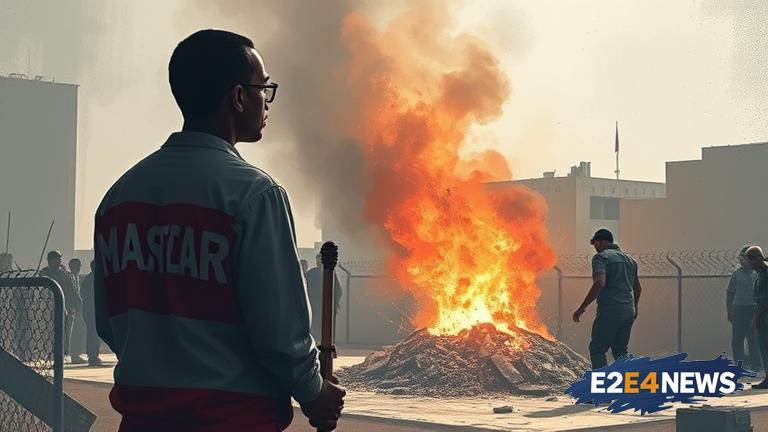The recent Israeli strike on a Gaza hospital has sent shockwaves around the world, with the international community demanding accountability for the deaths of five journalists. The strike, which occurred on a crowded hospital in the Gaza Strip, has been widely condemned as a gross violation of human rights and international law. The journalists, who were reporting on the ongoing conflict in the region, were among the many innocent civilians caught in the crossfire. The incident has sparked widespread outrage, with many calling for an immediate investigation into the circumstances surrounding the strike. The United Nations has issued a statement expressing its deep concern over the incident, and has called for a thorough and transparent investigation. The European Union has also condemned the strike, stating that it is unacceptable and that those responsible must be held accountable. The United States has also weighed in, calling for a thorough investigation and expressing its concern over the safety of journalists in conflict zones. The Israeli government has defended its actions, stating that the strike was a legitimate military operation aimed at targeting Hamas militants. However, human rights groups and journalists’ organizations have disputed this claim, arguing that the strike was a reckless and disproportionate use of force. The incident has highlighted the dangers faced by journalists in conflict zones, and has sparked a global debate about the need for greater protection and accountability. Many have pointed out that the strike is just the latest example of a broader pattern of violence and intimidation against journalists in the region. The Committee to Protect Journalists has condemned the strike, stating that it is a ‘brazen attack on the media’ and that those responsible must be held accountable. The incident has also sparked a wave of protests and demonstrations around the world, with many calling for an end to the violence and for greater accountability from the Israeli government. The international community is calling for a thorough and transparent investigation into the incident, and for those responsible to be held accountable. The incident has also highlighted the need for greater protection and support for journalists in conflict zones, and for a more robust and effective system of accountability for those who commit violence against them. As the investigation into the incident continues, many are left wondering how such a tragedy could have occurred, and what can be done to prevent similar incidents in the future. The incident has sparked a global conversation about the importance of protecting journalists and upholding human rights, even in the midst of conflict. The international community is watching closely, and is demanding that those responsible be held accountable for their actions. The incident has also raised questions about the role of social media and journalism in conflict zones, and the need for greater awareness and understanding of the risks and challenges faced by journalists in these regions. In the aftermath of the incident, many are calling for greater solidarity and support for journalists and media organizations, and for a more robust and effective system of accountability for those who commit violence against them. The incident has sparked a wave of outrage and condemnation, and has highlighted the need for greater protection and accountability in conflict zones. As the world waits for the results of the investigation, many are left wondering what the future holds for journalists and media organizations in the region, and what can be done to prevent similar incidents in the future.
